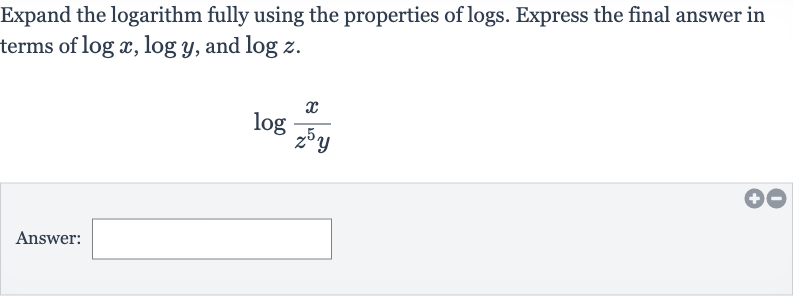Full solution
Q. Expand the logarithm fully using the properties of logs. Express the final answer in terms of , and .Answer:
- Identify Properties: Identify the properties used to expand . We will use the quotient property and the power property of logarithms to expand the given expression. Quotient Property: Power Property:
- Apply Quotient Property: Apply the quotient property to . Using the quotient property, we can separate the logarithm of the quotient into the difference of the logarithms of the numerator and the denominator.
- Apply Quotient Property Again: Apply the quotient property again to separate . We can further expand into using the product property of logarithms, which states that the logarithm of a product is the sum of the logarithms.
- Apply Power Property: Apply the power property to . Using the power property, we can take the exponent out in front of the logarithm.
- Substitute Expanded Log: Substitute the expanded back into the original expression.Now we replace in our expression from Step with .
- Distribute Negative Sign: Distribute the negative sign to both terms in the parentheses.We need to apply the negative sign to both and .
More problems from Quotient property of logarithms
QuestionGet tutor help
QuestionGet tutor help
QuestionGet tutor help
QuestionGet tutor help
QuestionGet tutor help

